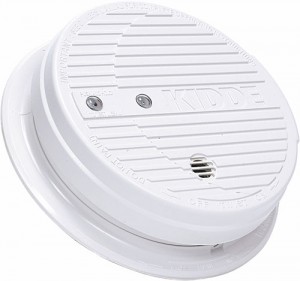On the Mainland, one way to remember to change your smoke alarm battery is by the slogan, “Change your clock, change your batteries!” While here in Hawaii we don’t “fall back” or “spring forward,” so checking your smoke alarm batteries twice a year to make sure they’re working will help save your life in the event of a home fire. A working smoke alarm in your home greatly increases your chance of surviving a home fire, but only if it is functional.
Here are a few statistics from the National Fire Protection Association:
• Having a working smoke alarm cuts the chances of dying in a reported fire in half.
• Ninety-six percent of all homes have at least one smoke alarm. Overall, three-quarters of all U.S. homes have at least one working smoke alarm.
• Almost two-thirds of home fire deaths in 2005 to 2009 resulted from fires in homes with no smoke alarms or no working smoke alarms.
• When smoke alarms fail to operate, it is usually because batteries are missing, disconnected, or dead.
• Almost one-quarter of smoke alarm failures are due to dead batteries.
Smoke alarms are proven lifesavers and alert occupants to fires just as they are starting. Fires produce smoke and toxic gases, which most people die from. This is especially true at night when you and your family are asleep. A working smoke alarm stands guard around the clock and, when it first senses smoke, it sounds a shrill alarm, giving you early notification of a fire and time to escape.
The Centers for Disease Control and Prevention (CDC) cites that although the number of fatalities and injuries caused by residential fires has declined over the past several decades, many residential fire-related deaths remain preventable. In addition to installing a smoke alarm on every floor of your home, and in or near every bedroom, here are a few prevention tips from the CDC:
• Cook with care, as cooking is the primary cause of residential fires. Never leave food unattended on the stove.
• If you smoke in your home, never smoke in bed or leave burning cigarettes unattended; smoking is the leading cause of fire-related deaths.
• Make and practice an escape plan. Know at least two ways out of every room and have a meeting place outside.
The Federal Emergency Management Agency advises that if your smoke alarm was installed more than ten years ago, it needs to be replaced. Your smoke alarms works every minute of every day. After millions of sensing cycles, they should be retired. Smoke alarms and their batteries are not expensive and are worth the lives they can save.
We all get annoyed by the “chirp, chirp” that sounds when our smoke alarm batteries are nearing their end. But instead of pulling out the old battery just to stop the alert, take that life-saving extra step to install new batteries.
Karen Nakamura is CEO of the Building Industry Association of Hawaii.
